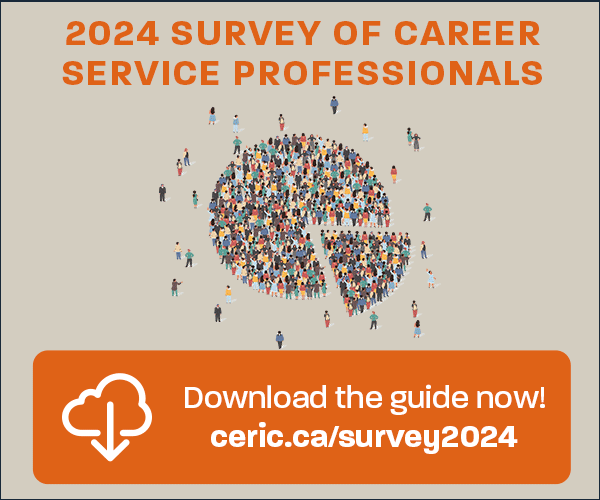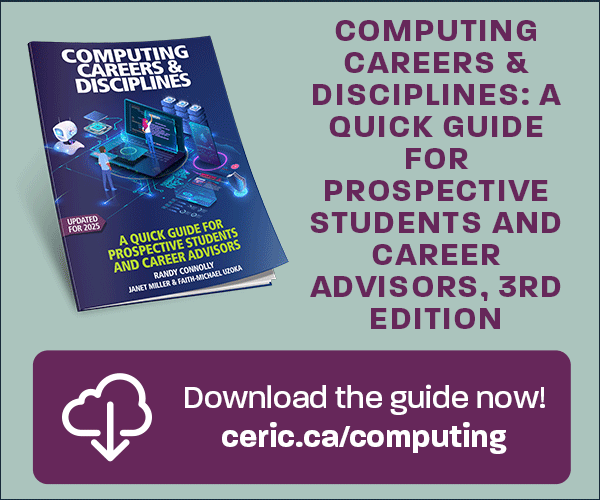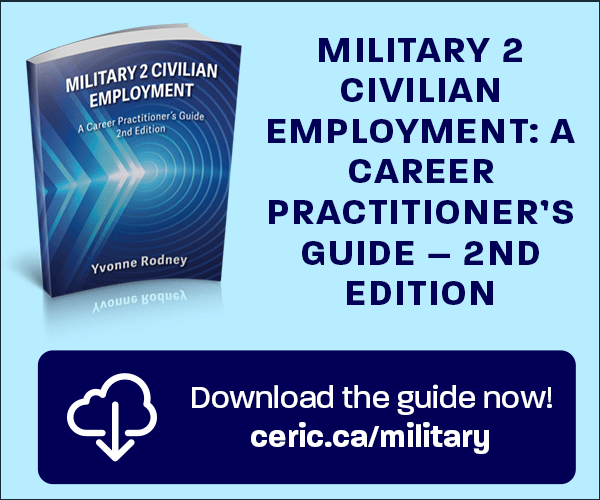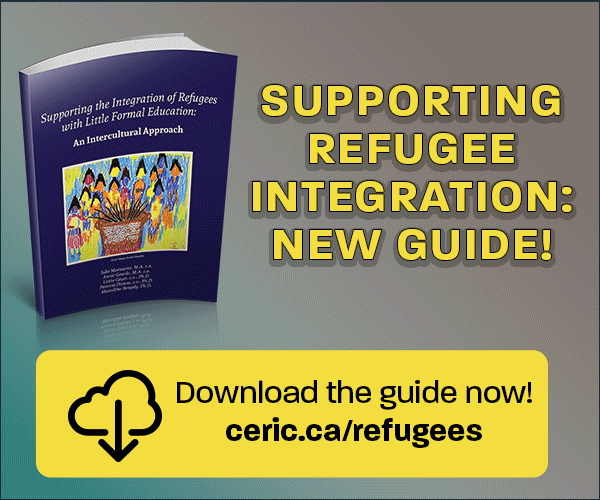Embedding Informational Interviews into Postsecondary Curriculum
Keywords:
Informational Interview, Postsecondary, CurriculumAbstract
An informational interview is a traditional career exploration technique. Students have a conversation with professionals where they seek advice on their career (Fiske, 2016). They can also be used to find information on industry and specific workplaces. A form of rapid prototype testing (Burnett & Evans, 2016), after each interview, the interviewer makes changes to their career vision and plan – refining it through additional interviews. These interviews help students build a network of contacts in a specific professional area. They can also benefit the interviewees by helping them to build a candidate pool for future hires. Although it is taboo for interviewers to ask for employment, IIs often lead to employment via planned happenstance (Mitchell, Al Levin, & Krumboltz, 1999). This makes it a more effective job search strategy than conventional applications because there is a significant hidden job market (Burnett & Evans, 2016).
References
Abel, J., & Deitz, R. (2014). Agglomeration and job matching among college graduates. Retrieved from https://www.newyorkfed.org/medialibrary/media/research/staff_reports/sr587.pdf
Ahmed, S. M., & Palermo, A.-G. S. (2010). Community Engagement in Research: Frameworks for Education and Peer Review. American Journal of Public Health, 100(8), 1380–1387. https://doi.org/10.2105/AJPH.2009.178137
Akhtar, A. (2019). Top companies are hiring more candidates without 4-year degrees - Business Insider. Retrieved October 7, 2019, from Business Insider website: https://www.businessinsider.com/top-companies-are-hiring-more-candidates-without-a-4-year-degree-2019-4
Arkes, H. R., & Blumer, C. (1985). The psychology of sunk cost. Organizational Behavior and Human Decision Processes, 35(1), 124–140. https://doi.org/10.1016/0749-5978(85)90049-4
Barker, D. (2004). The Scholarship of Engagement: A Taxonomy of Five Emerging Practice. Journal of Higher Education Outreach and Engagement, 9(2), 123–137.
Bentley University. (2014). The prepared U project: An in-depth look at millennial preparedness for today’s workforce. Retrieved July 30, 2018, from https://www.bentley.edu/files/prepared/1.29.2013_BentleyU_Whitepaper_Shareable.pdf
Bok, D. (2017). The struggle to reform our colleges (Vol. 105). Princeton University Press.
Boyer, E. L. (1989). Scholarship reconsidered: priorities of the professioriate (1st ed.). New Jersey: The Carnegie Foundation for the Advancement of Teaching.
Boyer, E. L. (1996). The Scholarship of Engagement. Bulletin of the American Academy of Arts and Sciences, 49(7), 18. https://doi.org/10.2307/3824459
Brooks, A. W., Gino, F., & Schweitzer, M. E. (2015). Smart People Ask for (My) Advice: Seeking Advice Boosts Perceptions of Competence. Management Science, 61(6), 1421–1435. https://doi.org/10.1287/mnsc.2014.2054
Burnett, B., & Evans, D. (2016). Designing your life: How to build a well-lived, joyful life (1st ed.). New York: Alfred A. Knopf.
Cabras, C., & Mondo, M. (2017). Future Orientation as a Mediator Between Career Adaptability and Life Satisfaction in University Students. Journal of Career Development, 89484531772761. https://doi.org/10.1177/0894845317727616
Cappelli, P. (2012). Why good people can’t get good jobs: the Skills gap and what people can do. Wharton Digital Press.
Casey Ozaki, C. (2016). Possible Selves, Possible Futures. Journal of College Student Retention: Research, Theory & Practice, 17(4), 413–436. https://doi.org/10.1177/1521025115579248
Craig, R., & Markowitz, T. (2017). The Skills Gap Is Actually An Awareness Gap -- And It’s Easier To Fix. Retrieved from Forbes Magazine website: https://www.forbes.com/sites/ryancraig/2017/03/17/the-skills-gap-is-actually-an-awareness-gap-and-its-easier-to-fix/#4daa50883ff4
Cranton, P., & Roy, M. (2003). When the Bottom Falls Out of the Bucket. Journal of Transformative Education, 1(2), 86–98. https://doi.org/10.1177/1541344603253928
Decarie, C. (2010). Literacy and Informational Interviews. Business Communication Quarterly, 73(3), 306–317. https://doi.org/10.1177/1080569910376533
DeClou, L., Peters, J., & Sattler, P. (2013). The University of Waterloo and Work-Integrated Learning : Three Perspectives The Higher Education Quality Council of Ontario. Toronto.
Desha, C. J., Hargroves, K., & Smith, M. H. (2009). Addressing the time lag dilemma in curriculum renewal towards engineering education for sustainable development. International Journal of Sustainability in Higher Education, 10(2), 184–199. https://doi.org/10.1108/14676370910949356
Dodson, J. D., & Yerkes, R. (1908). The relation of strength of stimulus to rapidity of habit-formation in the kitten. Journal of Animal Behavior, 5(4), 330–336. https://doi.org/10.1037/h0073415
Etzkowitz, H., Webster, A., & Healey, P. (1998). apitalizing knowledge: New intersections of industry and academia (1st ed.). New York: Suny Press.
Faragher, E. B. (2005). The relationship between job satisfaction and health: a meta-analysis. Occupational and Environmental Medicine, 62(2), 105–112. https://doi.org/10.1136/oem.2002.006734
Fiske, P. (2016). For your information. Nature, 538(7625), 417–418. https://doi.org/10.1038/nj7625-417a
Fitzgerald, H. E., Bruns, K., Sonka, S. T., Furco, A., & Swanson, L. (2012). The centrality of engagement in higher education. Journal of Higher Education Outreach and Engagement, 16(3), 7–28. https://doi.org/10.1080/0022250X.1999.9990219
Habermas, J. (2015). Knowledge and human interests. ohn Wiley & Sons.
Hart Research Association. (2015). Falling Short? College Learning and Career Success. Retrieved July 30, 2018, from Association of American Colleges & Universities website: https://www.aacu.org/leap/public-opinion-research/2015-survey-falling-short
Jablonski, C. (2015). Informational Interview Delivers a Lucky Break. Retrieved from Cumming School of Medicine - Graduate Science Education website: https://cumming.ucalgary.ca/gse/professional-development/informational-interview-delivers-lucky-break
Kolb, A. Y., & Kolb, D. A. (2005). Learning Styles and Learning Spaces: Enhancing Experiential Learning in Higher Education. Academy of Management Learning & Education, 4(2), 193–212. https://doi.org/10.5465/amle.2005.17268566
Kolb, D. (1984). The Process of Experiential Learning. In Strategic Learning in a Knowledge Economy (pp. 313–331). https://doi.org/10.1016/B978-0-7506-7223-8.50017-4
Lenton, R., Sidhu, R., Kaur, S., Conrad, M., Kennedy, B., Munro, Y., & Smith, R. (2014). Community Service Learning and Community-Based Learning as Approaches to Enhancing University Service Learning. Toronto.
Liljenquist, K., & Galinsky, A. (2007). Turn your adversary into your advocate. Negotiation, 10(5), 1–3.
Lupien, S. J., Maheu, F., Tu, M., Fiocco, A., & Schramek, T. E. (2007). The effects of stress and stress hormones on human cognition: Implications for the field of brain and cognition. Brain and Cognition, 65(3), 209–237. https://doi.org/10.1016/j.bandc.2007.02.007
Maslow, A. H. (1943). A theory of human motivation. Psychological Review, 50(4), 370–396. https://doi.org/10.1037/h0054346
Mezirow, J. (1991). Transformative dimensions of adult learning. San Francisco, CA: Jossey-Bass.
Mitchell, K. E., Al Levin, S., & Krumboltz, J. D. (1999). Planned Happenstance: Constructing Unexpected Career Opportunities. Journal of Counseling & Development, 77(2), 115–124. https://doi.org/10.1002/j.1556-6676.1999.tb02431.x
Mulvaney, M. K. (2003). The Information Interview: Bridging College and Beyond. Business Communication Quarterly, 66(3), 66–70. https://doi.org/10.1177/108056990306600307
Newman, F., Couturier, L., & Scurry, J. (2004). The Future of Higher Education : Rhetoric, Reality, and the Risks of the Market (1st ed.). Jossey-Bass.
O’Brien, B. (2015). Market, The hidden job. Retrieved from Nature jobs website: http://blogs.nature.com/naturejobs/2015/03/19/the-hidden-job-market/
Orr, C., Sherony, B., & Steinhaus, C. (2011). Employer perceptions of student informational interviewing skills and behaviors. American Journal of Business Education, 4(12), 23–32.
Peters, J. (2012). Faculty experienes with and perception of work-Integrated Learning in Ontario’s Postsecondary Sector. Retrieved from Higher Education Quality Council of Ontario website: http://www.heqco.ca/SiteCollectionDocuments/WILFacultyENG.pdf
Public Agenda. (2014). Profiting higher education: What students, alumni, and employers think about for-profit colleges. Retrieved from https://www.publicagenda.org/files/ProfitingHigherEducation_PublicAgenda_2014.pdf
Quality Assurance Agency for Higher Education. (2001). Guidelines for HE progress files. Retrieved from http://dera.ioe.ac.uk/8480/1/progfile2001.pdf
Rancourt, D. (2017). Informational Interviews: More Than a Career Mapping Tool. Retrieved from Taylor Institute for Teaching and Learning website: http://connections.ucalgaryblogs.ca/2017/04/06/informational-interviews-more-than-a-career-mapping-tool/
Sattler, P. (2011). Work-Integrated Learning in Ontario’s Postsecondary Sector. Toronto.
Senninger, T. (2000). The Learning Zone Model. Retrieved from ThemPra Social Pedagogy website: http://www.thempra.org.uk/social-pedagogy/key-concepts-in-social-pedagogy/the-learning-zone-model/
Sheppard, S. (1989). II The Informational Inter- Ii View as a Tool for Sharp Ening Oral, Written, and Interviewing Skills. The Bulletin of the Association for Business Communication, 52(2), 19–20. https://doi.org/10.1177/108056998905200208
Smith, D., & LaVelle, K. (2013). The new skills imperative: Reconnecting work with the workforce. Retrieved from Accenture website: https://www.accenture.com/ca-en/insight-outlook-new-skills-imperative-reconnecting-work-with-workforce
Stanbury, D. (2010a). The kindness of strangers. Education + Training, 52(2), 100–116. https://doi.org/10.1108/00400911011027707
Stanbury, D. (2010b). The kindness of strangers: How careers educators and the wider academic community can help each other. Education + Training, 52(2), 100–116. https://doi.org/10.1108/00400911011027707
Stevenson, J., & Clegg, S. (2011). Possible selves: students orientating themselves towards the future through extracurricular activity. British Educational Research Journal, 37(2), 231–246. https://doi.org/10.1080/01411920903540672
Strada-Gallup 2017 College Student Survey. (2017). In Gallup & Strada Education Network. Retrieved from http://stradaeducation.gallup.com/reports/225161/2017-strada-gallup-college-student-survey.aspx
Strauss, K., Griffin, M. A., & Parker, S. K. (2012). Future work selves: How salient hoped-for identities motivate proactive career behaviors. Journal of Applied Psychology, 97(3), 580–598. https://doi.org/10.1037/a0026423
Taber, B. J. (2013). Time Perspective and Career Decision-Making Difficulties in Adults. Journal of Career Assessment, 21(2), 200–209. https://doi.org/10.1177/1069072712466722
Teller, E. (2017). Teaching the Importance of Networking by Conducting Informational Interviews. Journal of the Academy of Business Education, 18, 417. Retrieved from http://mendeley.csuc.cat/fitxers/e226cad27fc6506eb9afac16fe26c9d3
The Cheeky Scientist Association. (2016). Top 20 Industry Positions for PhDs. Retrieved from https://cheekyscientist.com/guidebook/
Van Houten, A. (2016). Professional development program teaches valuable soft skills to science PhDs. Retrieved from University Affairs website: https://www.universityaffairs.ca/career-advice/career-advice-article/professional-development-program-teaches-valuable-soft-skills-science-phds/
Watson, W. R., & Watson, S. L. (2013). Exploding the Ivory Tower: Systemic Change for Higher Education. TechTrends, 57(5), 42–46. https://doi.org/10.1007/s11528-013-0690-9
Weerts, D. J., & Sandmann, L. R. (2010). Community Engagement and Boundary-Spanning Roles at Research Universities. The Journal of Higher Education, 81(6), 632–657. https://doi.org/10.1080/00221546.2010.11779075
Yukl, G., & Tracey, J. B. (1992). Consequences of influence tactics used with subordinates, peers, and the boss. Journal of Applied Psychology, 77(4), 525–535. https://doi.org/10.1037/0021-9010.77.4.525

Downloads
Published
How to Cite
Issue
Section
License
Copyright (c) 2020 CANADIAN JOURNAL OF CAREER DEVELOPMENT

This work is licensed under a Creative Commons Attribution-NonCommercial-NoDerivatives 4.0 International License.
















